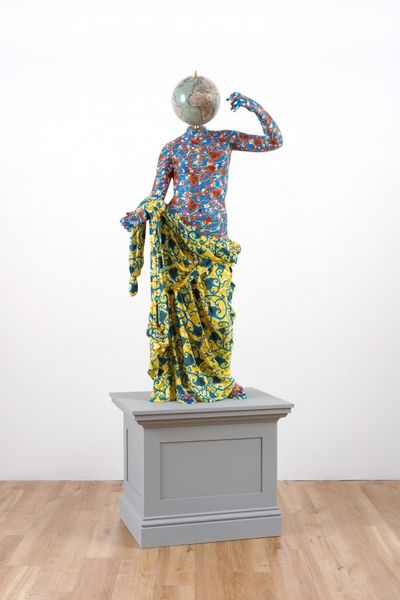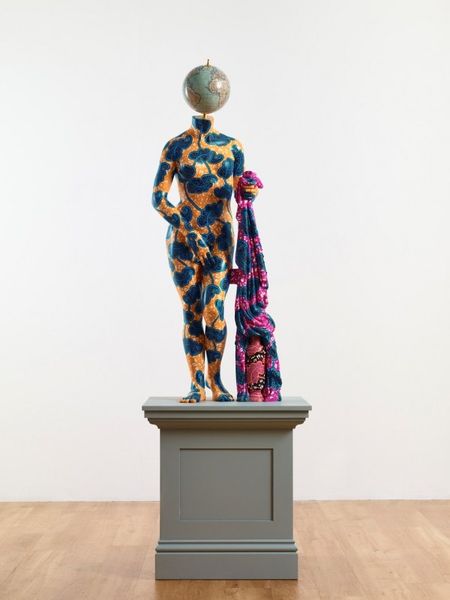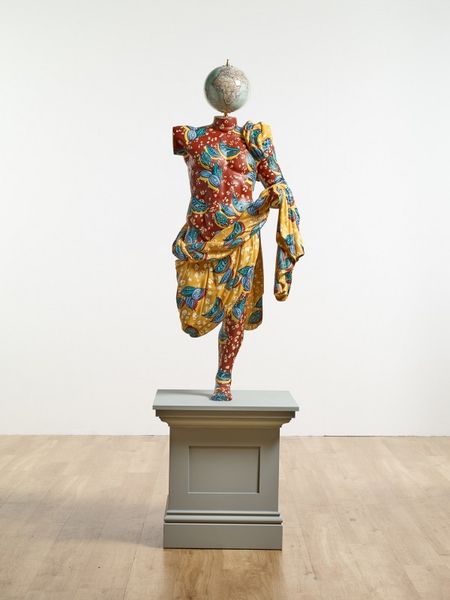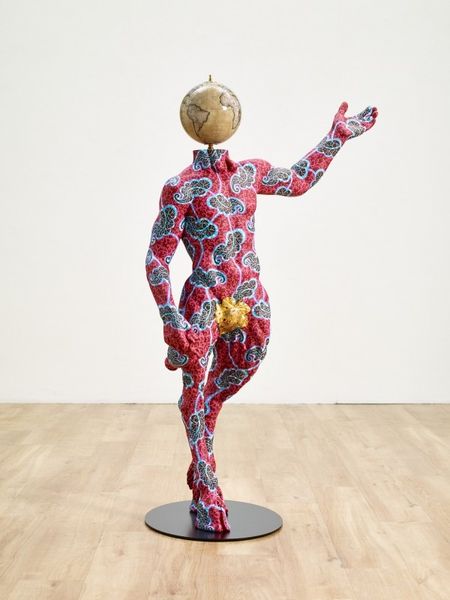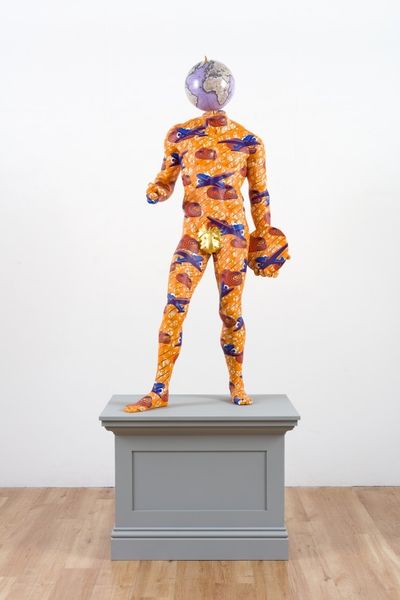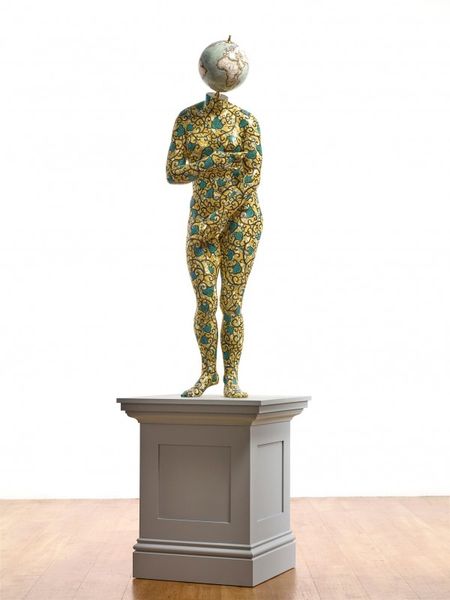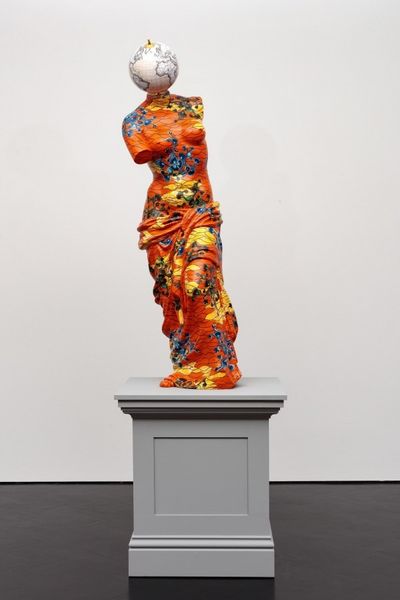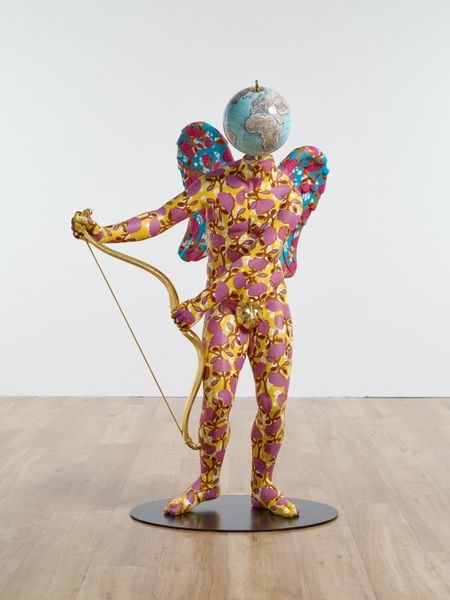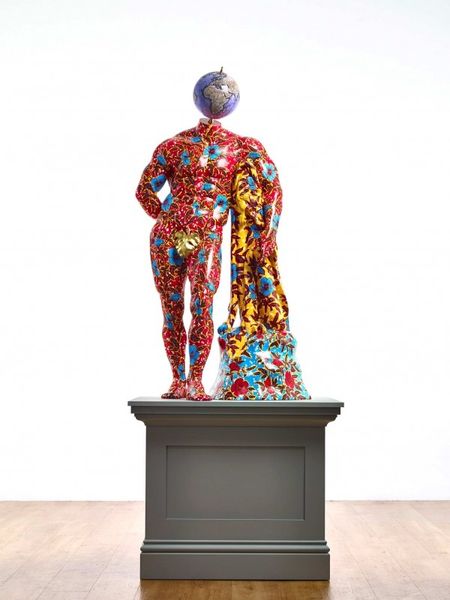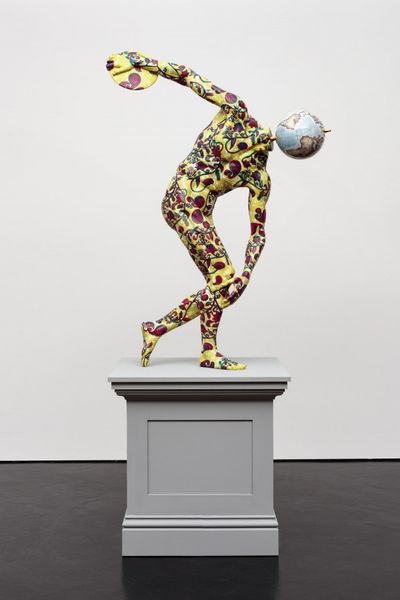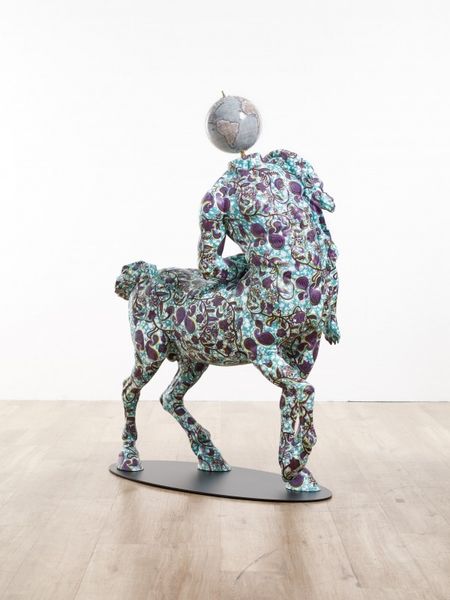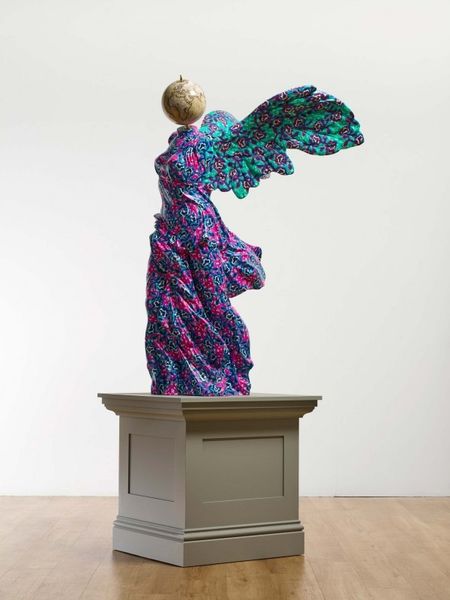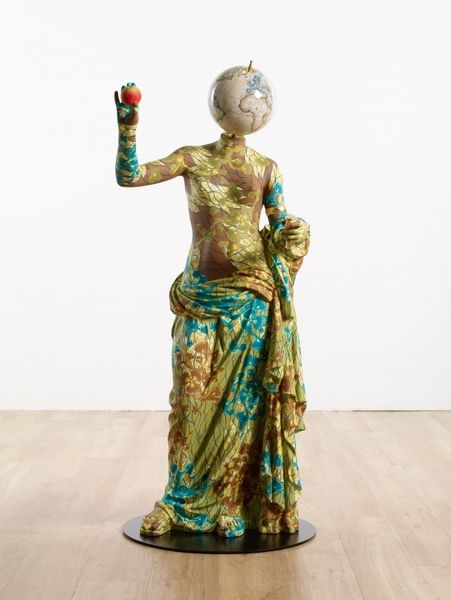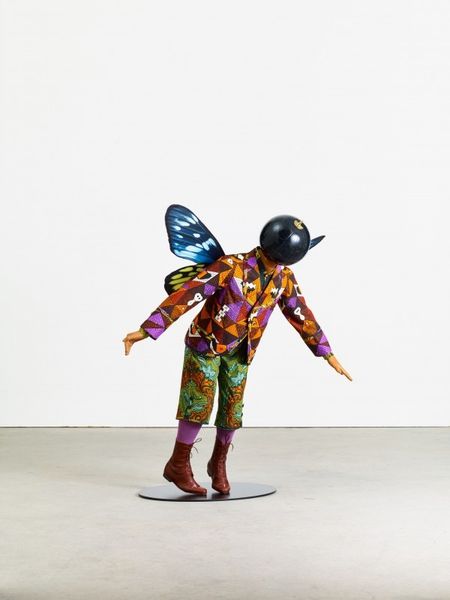
mixed-media, sculpture, installation-art
#
portrait
#
mixed-media
#
contemporary
#
appropriation
#
figuration
#
sculpture
#
installation-art
Copyright: Yinka Shonibare,Fair Use
Editor: Right, so here we have Yinka Shonibare's 'Apollo of the Belvedere (after Leochares)' created in 2017. It’s a mixed-media piece; the figure's covered in this really striking patterned fabric, and, oddly, its head has been replaced with a globe. It feels like a commentary on… cultural exchange, maybe? How do you interpret this work? Curator: Shonibare's deliberate appropriation of a classical sculpture is fascinating, isn't it? The Apollo Belvedere is such a cornerstone of Western art history, embodying ideals of beauty and enlightenment. But Shonibare disrupts this narrative. What do you notice about the fabric used? Editor: Well, it's very vibrant and definitely not something you'd associate with ancient Greece! It looks like Dutch wax print. Curator: Precisely. Often mistaken as authentically African, these fabrics have a complex history, tied to Dutch colonialism and Indonesian batik. By cladding Apollo in this material, Shonibare highlights the intertwined and often uneven power dynamics of cultural exchange. He is literally "dressing" Western history in African textiles. Where does that leave us, do you think, in understanding the canon of art? Editor: So, it's not just about replacing the head with a globe; it's about reframing the entire figure and questioning its authority and how these historical narratives get shaped, then? Curator: Exactly. Shonibare’s gesture brings awareness of trade, colonialism and power. Artworks can become these sites for public conversation. Editor: That's given me a lot to think about, particularly how art institutions like this one contribute to these historical narratives. Curator: Indeed, it highlights how museums can play a part in questioning established canons and embracing a more inclusive art history.
Comments
No comments
Be the first to comment and join the conversation on the ultimate creative platform.
